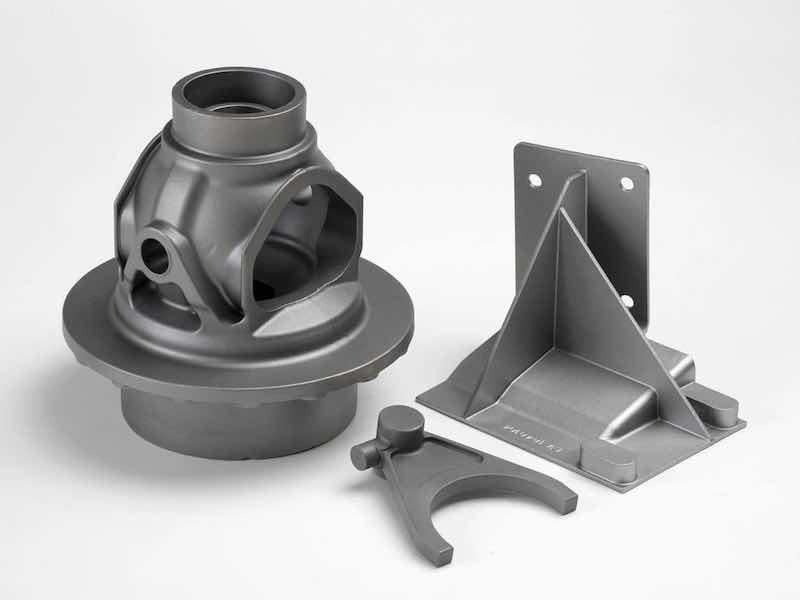The Crucial Usages of Aluminum Foundry in Numerous Industries and Their Impact
Aluminum foundries function as an essential resource within various markets. Their durable and light-weight products greatly enhance performance in automotive, aerospace, construction, and electronics industries. As each market leverages aluminum's special buildings, they additionally add to sustainability efforts. This diverse effect triggers a deeper exploration of just how Aluminum formed these sectors. What particular developments and advantages arise from its use?
Automotive Industry Applications
The vehicle sector progressively counts on Aluminum Foundry applications to boost vehicle efficiency and effectiveness. Aluminum's light-weight nature adds greatly to sustain economic situation, making it a recommended option for suppliers intending to lower emissions and improve overall car dynamics. Elements such as engine blocks, transmission housings, and wheels are frequently created via Aluminum casting procedures, permitting complex layouts that satisfy strenuous safety and security and efficiency criteria.

Aerospace Innovations

Moreover, using aerospace-grade Aluminum alloys improves resistance to deterioration and tiredness, essential for the demanding atmospheres aircraft face. Developments in additive manufacturing also allow for fast prototyping and customization of parts, minimizing lead times and prices.
Construction and Facilities
While the building and infrastructure sectors proceed to advance, Aluminum foundries are increasingly acknowledged for their contributions to modern-day building practices. Light weight aluminum's lightweight nature and high stamina make it a suitable material for numerous architectural applications. Factories provide parts such as beams, frames, and facades that boost the sturdiness and longevity of buildings and infrastructure jobs.
Furthermore, aluminum's deterioration resistance plays an important function in expanding the life expectancy of structures exposed to harsh ecological conditions. The energy efficiency of Aluminum products also straightens with lasting structure initiatives, adding to reduced power usage in building and construction. Furthermore, innovative casting techniques have actually increased the style opportunities, allowing designers and architects to produce aesthetically pleasing yet practical frameworks.
Electronics Manufacturing
Aluminum foundries play navigate to these guys a significant duty in the electronics making sector, where the demand for thermally conductive and lightweight products is critical. Metal Castings. Parts such as heat sinks, coverings, and braces are frequently produced utilizing Aluminum due to its excellent thermal homes and capability to dissipate warm effectively. This is essential in electronic tools, where overheating can bring about failing and minimized performance
The versatility of Aluminum permits complicated styles and specific machining, which are important in contemporary electronic devices. In addition, aluminum's non-magnetic residential properties make it appropriate for applications in delicate digital equipment, minimizing interference. Aluminum's resistance to rust boosts the longevity of electronic elements, making sure durability and dependability.
Sustainability and Reusing Efforts
Provided the enhancing focus on ecological obligation, the Aluminum Foundry industry has made substantial strides in sustainability and recycling efforts. Aluminum is naturally recyclable, allowing foundries to recycle and redeem product with marginal power expenditure contrasted to primary production. This closed-loop recycling procedure not only minimizes waste however also decreases greenhouse gas exhausts, adding to an extra lasting manufacturing design.
Moreover, many shops are taking on energy-efficient technologies, including eco-friendly power resources, to power their procedures (Aluminum Foundry). This shift not only reduces dependence on fossil fuels however also improves general operational effectiveness
Market partnerships are additional advertising sustainable practices, such as sharing ideal techniques and establishing cutting-edge reusing approaches. By prioritizing these efforts, the Aluminum Foundry field is placing itself as a leader in lasting manufacturing, straightening with international targets for sustainability while fulfilling the demands of various industries.

Often Asked Concerns
What Are the Primary Advantages of Using Aluminum in Foundry Processes?
The key benefits of utilizing Aluminum in Foundry procedures include its light-weight nature, outstanding rust resistance, high thermal and electric conductivity, and convenience, enabling intricate layouts and effective recycling, ultimately improving overall manufacturing performance and decreasing expenses. - Aluminum Foundry
How Does Aluminum Foundry Influence Product Lifecycle Administration?
Aluminum Foundry significantly boosts item lifecycle management by allowing efficient material use, lowering waste, and promoting recycling. Its light-weight buildings boost transport efficiency, investigate this site while durability extends product life expectancy, eventually contributing to sustainability and cost-effectiveness in production.
Exist Specific Difficulties in Aluminum Foundry Manufacturing?
Particular challenges in Aluminum Foundry production consist of handling temperature level control, making sure material high quality, decreasing waste, and adapting to fluctuating market demands. These aspects can impact performance, expense, and overall competition within the sector.
What Safety And Security Procedures Are Vital in Aluminum Foundry Procedures?
Vital security actions in Aluminum Foundry procedures consist of individual protective devices, proper ventilation, regular equipment upkeep, hazard communication, and see this emergency action training. Applying these practices guarantees worker security and reduces threats related to high-temperature metal processing.
How Does the Expense of Aluminum Compare to Various Other Metals in Foundry Use?
The cost of Aluminum is normally reduced than that of metals like copper and titanium, making it a cost-efficient option for lots of Foundry applications. This affordability adds to its extensive usage across different industries.
Aluminum factories offer as an important source within countless markets. The auto market increasingly relies on Aluminum Foundry applications to boost vehicle performance and efficiency. The product's recyclability also straightens with the sector's press in the direction of sustainability, as recycled Aluminum requires substantially much less power to process compared to main light weight aluminum. Aluminum foundries play a significant duty in the electronic devices producing industry, where the need for thermally conductive and lightweight materials is extremely important. Offered the boosting emphasis on ecological responsibility, the Aluminum Foundry industry has actually made significant strides in sustainability and reusing initiatives.